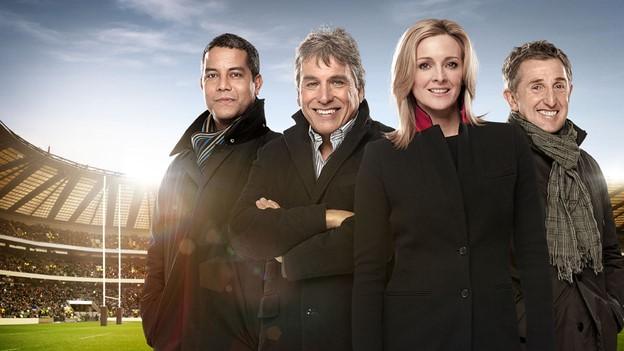Six Nations: Eddie Jones' England don't know how to lose
- Published
- comments
Believing you will win when all around see a match that's slipping away. Coming back for more when all game you have been turned over and picked off. Finding precision in the critical moment, having been imprecise in so much of what has gone before.
England, despite the late larceny in Cardiff that has extended their victory roll to 16 games and counting, are far from perfect. There are flaws and weaknesses there, but the abiding memory from this white-hot battle on a frozen winter's night will be of strength: of character, in depth, of conviction.
Wales thought they had done enough. For 76 minutes they had, playing with a pace and ferocity that stirred memories of the massacre of Stuart Lancaster's innocents here four years ago. The massed ranks of their support were singing them home.
And then it turned, ostensibly on one tired clearing kick from Jonathan Davies, but really on so much more.
Good teams go close and see the logic in their defeat. They vow to go away and learn the lessons. They accept that sometimes it is just not their day.
This England team don't appear to countenance defeat at all. They refuse to let the pressure of being close cloud their thinking. They keep winning that ugly way.
George Ford, fielding Davies' kick 40 metres out with England 16-14 down, might have gambled on a speculative drop-goal.
Owen Farrell, taking his pass at pace and with only one man outside him, might have twitched at the memory of the interception a few minutes earlier, or gone safely into contact to set up field position.
Elliot Daly, running on instead to another fast, sweetly timed pass, might have cut inside or allowed himself to be swallowed up by the onrushing arms of Alex Cuthbert.
Four minutes to go, everything hanging on that one moment, and they made it happen. If it was cruel on Wales, better than they have been in many a marooned year, it characterised the essence of what this England team has become.
English grit won us the game - Jones
Jones the general, Howley the well-meaning supply teacher
Eddie Jones always thinks his side will win, no matter what mess they find themselves in. Rob Howley always looks worried that his Wales team will lose.
That belief has permeated through the ranks. Maro Itoje doesn't dwell on the possibility of defeat, not least because in his brief career it has been such an unfamiliar experience to him.
James Haskell's ego makes him relish coming off the bench to help turn games around. Farrell, hit so late and hard by Ross Moriarty early in the second half that he was left dry-retching, sucked it in, grinned and came back to produce the contest's pivotal pass and kick.
Howley is a nice man and a dedicated coach who, as a player, could do things few other scrum-halves could. His record as Wales' caretaker boss while Warren Gatland is away is statistically solid - seven wins in his past 10 matches - and has touched occasional heights: a record-breaking win over South Africa last autumn, that unprecedented 30-3 hammering of England in 2013.
But whereas Jones comes across as a general with both tactical mastery and troops who are genuinely frightened of him, Howley is more the well-meaning supply teacher whose optimistic lesson plans fail to survive the streetwise and disruptive elements inherent in every classroom.
It is the difference too between the England of Jones and that of his predecessor Lancaster, another honourable, hard-working man who saw crunch matches slip from his grasp in each of his four Six Nations campaigns.
Six Nations 2017: 'Composure let Wales down' - Howley
It happened at Twickenham in 2012, when Scott Williams' brilliant solo burglary and escape sent Wales away towards a third Grand Slam in eight years and left England stalled in second.
It happened in Paris in 2014, when Gael Fickou's late acceleration inside Alex Goode snatched a victory at the death to spell another second place.
And it happened, most famously of all, at Twickenham in that tumultuous World Cup group showdown 18 months ago, when an England team 10 points ahead, with half an hour to go, let a Welsh side with a scrum-half on the wing, a wing at centre and a patched-up fly-half at full-back fight back to steal away a three-point win that will be sung about until the Severn runs dry.
Jones, reptilian grin and all, does not care who likes him or what others think of his team, as Howley often appears to do and Lancaster once did.
And he is becoming defined by these wins when all is nip and tuck and maybe not: here in Cardiff, when his inexperienced back row shipped eight turnovers to their opponents, when the usually unflustered Jonathan Joseph was throwing passes into touch, when only Daly's muscular speed had denied the excellent Dan Biggar a breakaway try; against France a week ago, when three opposition players all made more than 125m with ball in hand; when a red card for Daly meant 75 minutes against Argentina last autumn with 14 men.
The power of the bench
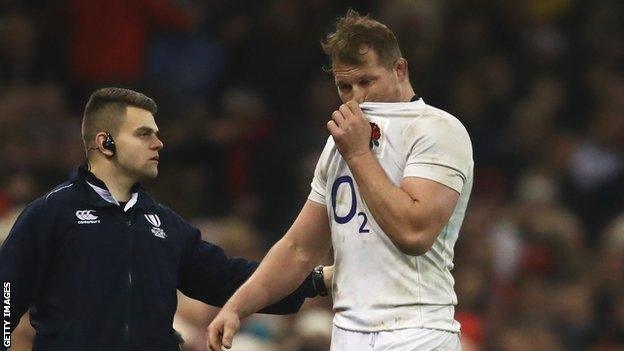
Captain Dylan Hartley was replaced after only 46 minutes as England turned to their bench to see them to victory
Jones spoke afterwards of his team having used up all their get-out-of-jail cards. It was an admission that he expects better and will drill his charges until it comes.
It was also a reflection of a bench that he calls his finishers but may be better described as his emergency services.
Normally the sight of a skipper being hauled off uninjured after 46 minutes would be a cause for crisis. Not when Jones can send on Jamie George for Dylan Hartley.
Haskell, bullish in mind and body, deserves better than the bench but repeatedly makes such an impact from it that he may suffer the unusual misfortune of playing himself out of the starting XV.
Ben Te'o, Danny Care, Kyle Sinckler; the names and minutes played may change from game to game, but the influence seldom does.
In the second row, Joe Launchbury: not a first choice, not with Itoje and George Kruis in town, but 20 tackles on Saturday night in a defence that kept Wales within range.
And so England rumble on, to play an Italian team who have never beaten them, to another home fixture after that against a Scotland side who are winless at Twickenham in 34 years.
No-one in the camp is talking yet about Grand Slams, but precedent suggests the trip to Ireland in five weeks time might be precisely for that.
Wales will take heart from their performance, if little comfort from helping produce a match that gripped from the start and carried all watching along to the end.
They might wonder how this one got away, look back with regret at those first-half penalties not aimed at the posts or the period of second-half dominance that featured wonderful possession and territory but nothing on the board to show for it.
England? There will be no regrets, not when they keep marching forward, not when they keep finding a way.
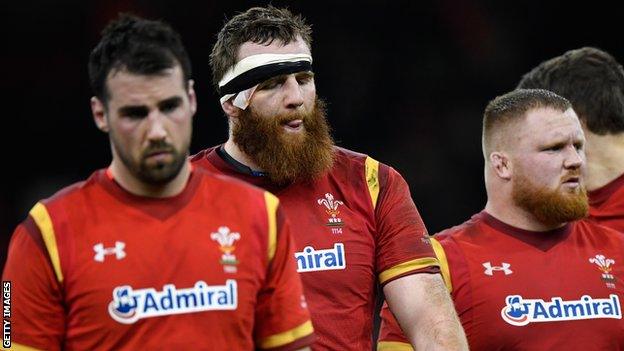
There will be plenty of regrets for Wales having come so close to downing the reigning Six Nations champions
- Published11 February 2017
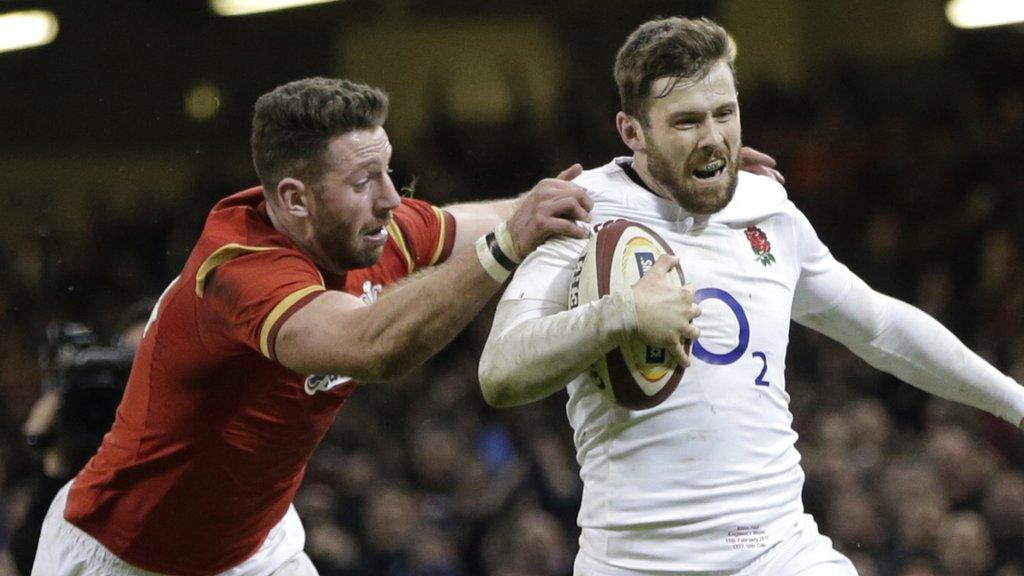
- Published11 February 2017
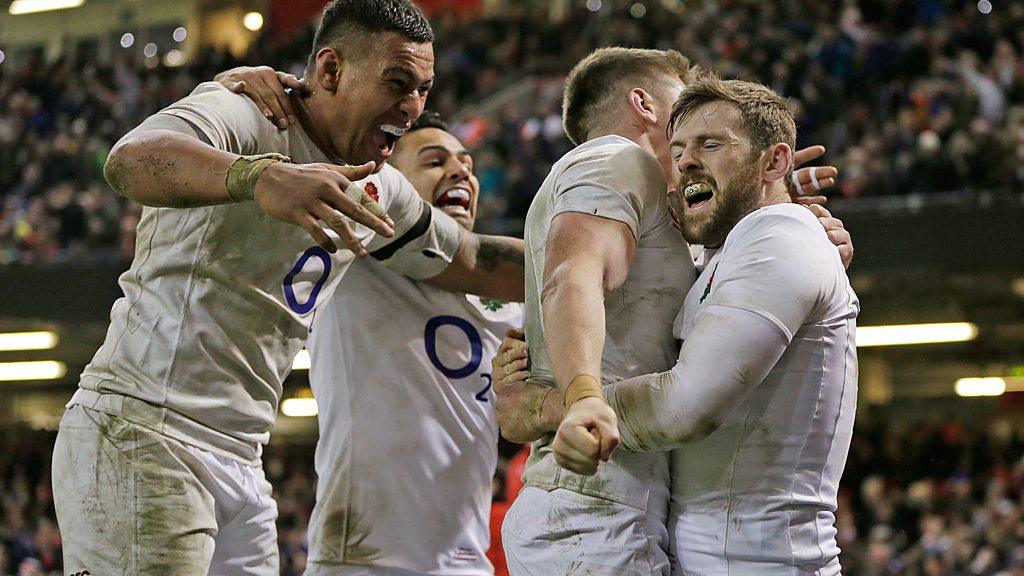
- Published11 February 2017
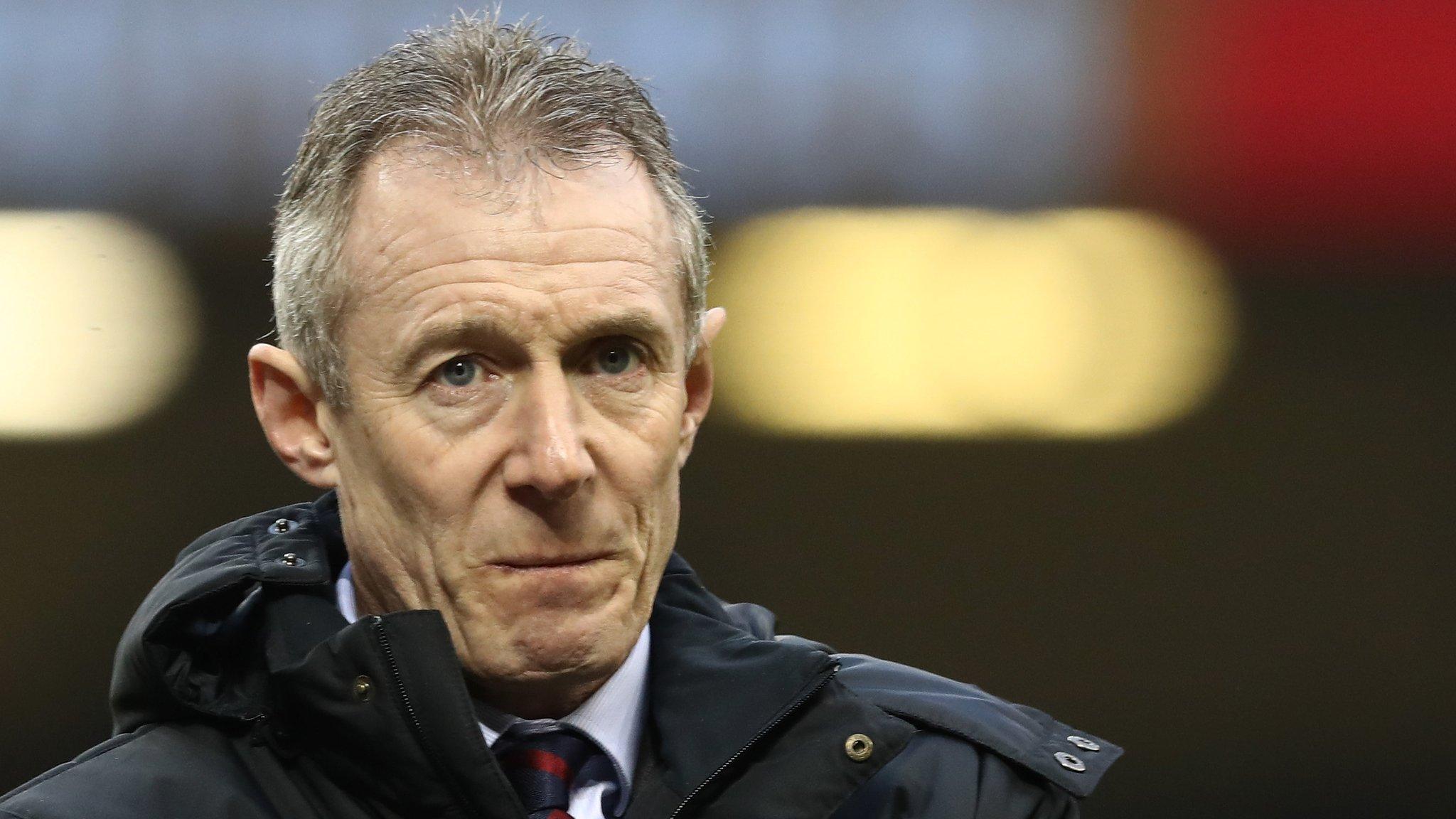
- Published11 February 2017
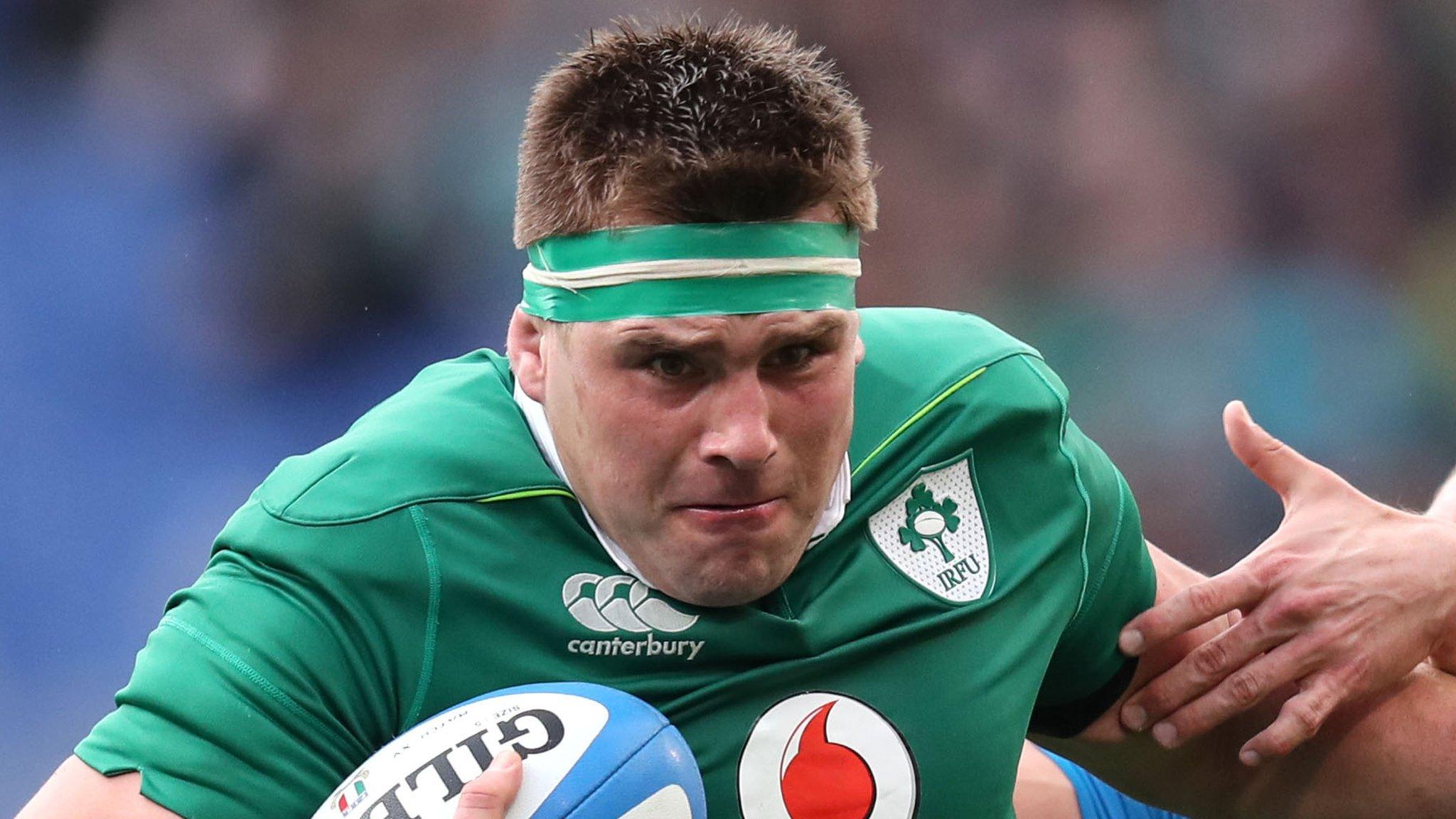
- Published5 February 2017
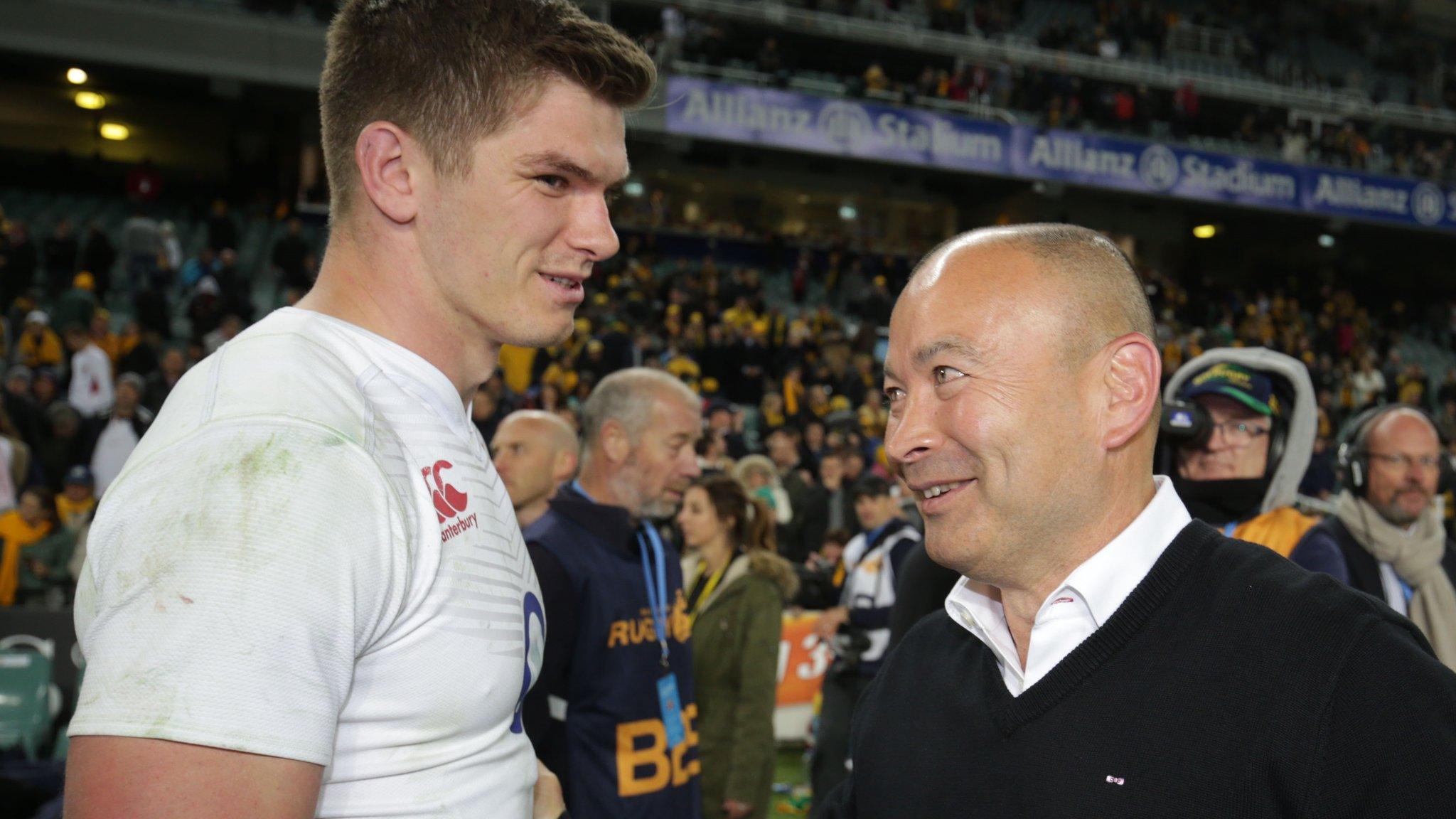
- Published17 March 2017
